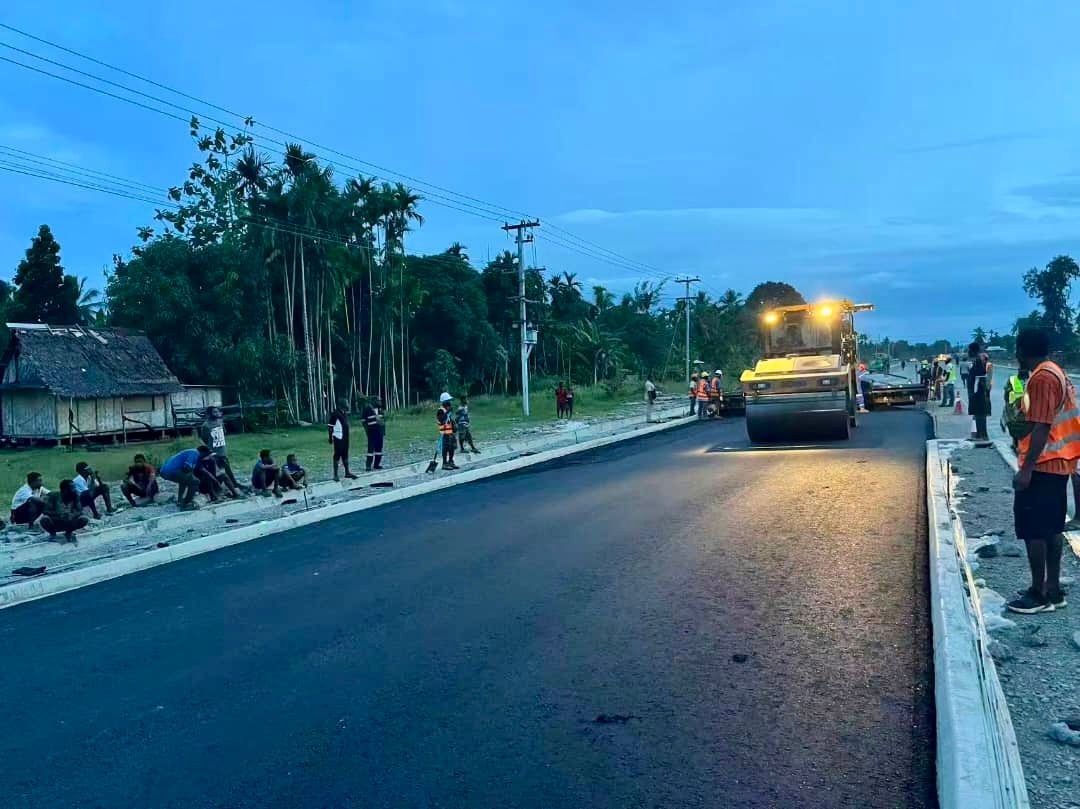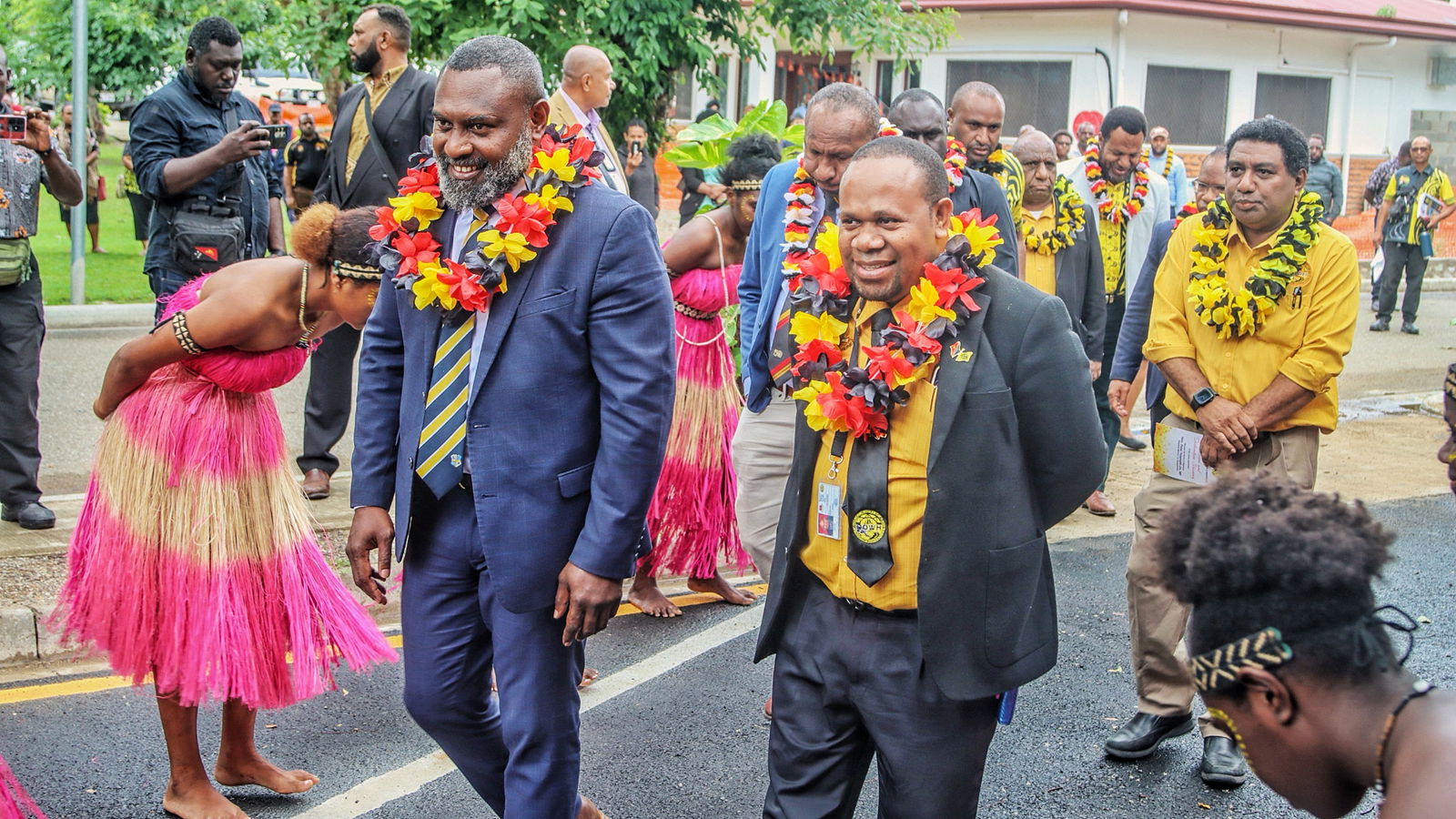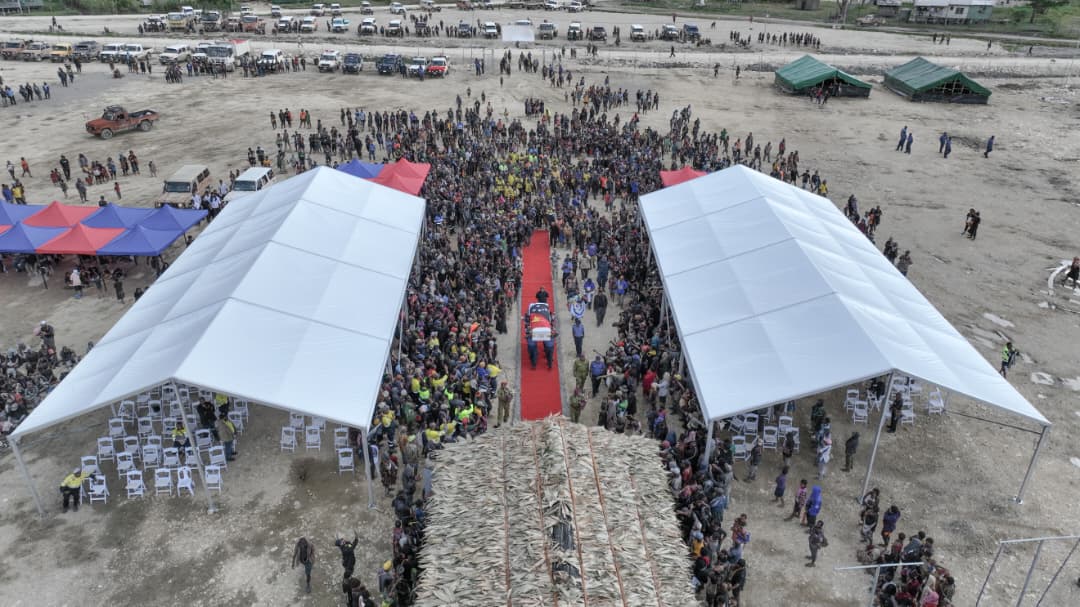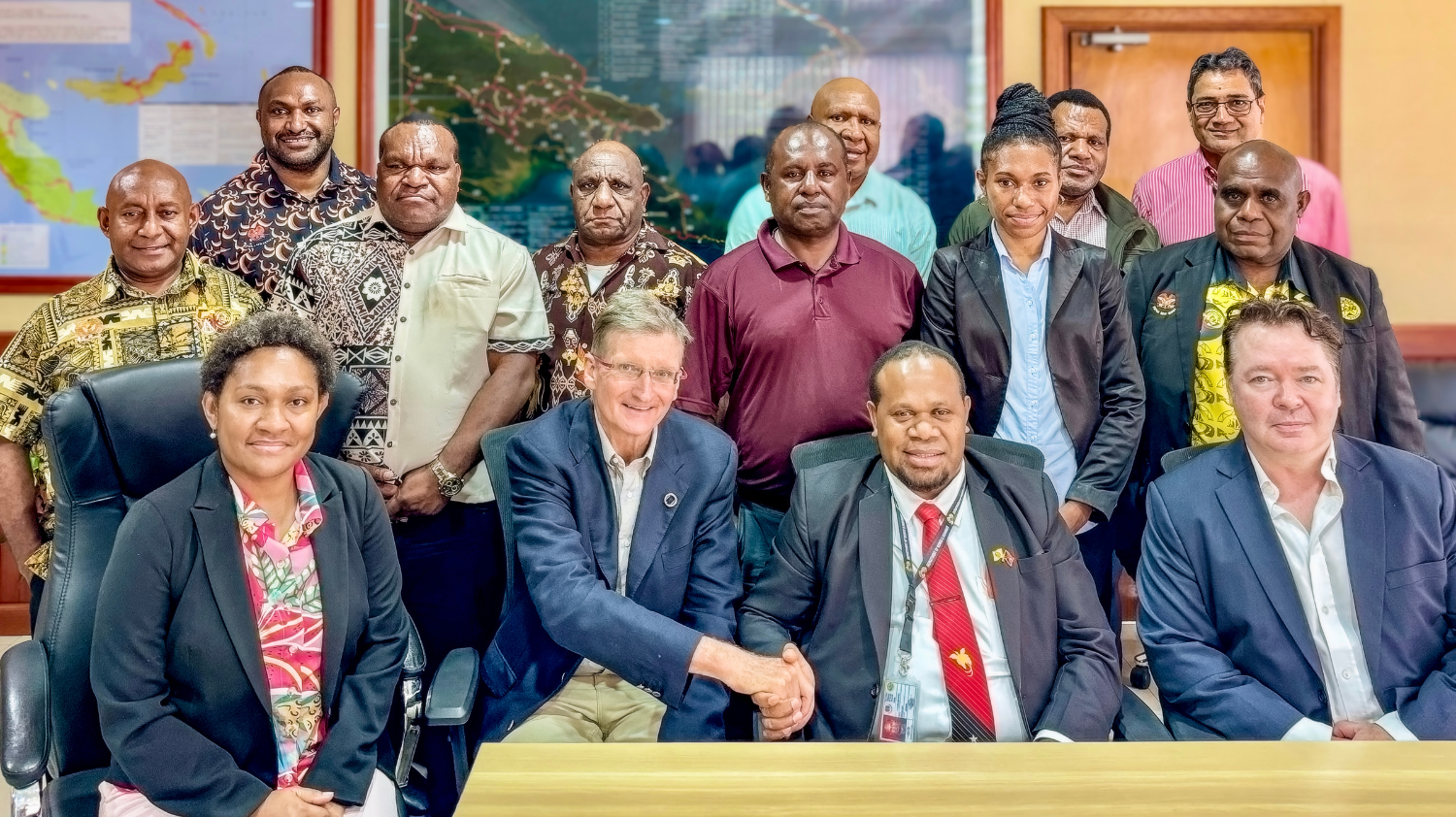Achievements and Impact of the Department of Works and Highways (DoWH)
- by DoWH
- 16th December 2024
The Department of Works and Highways (DoWH) has made significant strides in transforming Papua New Guinea’s infrastructure landscape, achieving milestones that enhance connectivity, economic growth, and climate resilience. These accomplishments underscore the department’s commitment to aligning with national goals such as Vision 2050 and the Medium-Term Development Plan IV (MTDP IV).
Key Achievements
1. Expansion of Road Connectivity
Connect PNG Program Progress
- Over 2,400 km of national highways improved and 5,000 km of provincial and district roads enhanced, achieving 60% of planned targets for rural access improvement.
- Completion of major missing link roads such as the Tabubil-Telefomin Road and Hiritano Highway, enhancing economic corridors and regional connectivity.
Economic Highways
- Upgrades to the Highlands Highway, including 840 km of rehabilitated and maintained strategic economic roads, significantly reducing travel times and costs.
2. Bridge Development and Upgrades
- Replacement of over 2,700 meters of rural and national bridges with climate-resilient designs, improving safety and reliability.
3. Job Creation and Economic Stimulation
- Employment Generation: Over 12,500 jobs created, with approximately 30% filled by women, directly supporting household incomes.
- Local Contractor Development: Creation of 20 local contracting firms with contracts worth K1.2 billion.
Strategic Contributions to National Development
1. Economic Growth
- Infrastructure investments have led to K2.54 billion in annual economic savings from reduced travel times and vehicle operating costs.
- Improved access to markets for agricultural products like coffee and cocoa, fostering rural economic development.
2. Social Inclusion
- Enhanced access to essential services such as healthcare, education, and government programs for remote communities.
- Gender Equity and Social Inclusion (GESI) initiatives embedded in projects to promote inclusivity.
3. Climate Resilience
- Integration of climate-adaptive designs in roads and bridges, mitigating the impacts of floods and landslides.
Capacity Building and Governance
1. Workforce Development
- Training programs delivered under the Transport Sector Support Program (TSSP), benefitting 40 management staff, including 19 women.
- Expansion of the Graduate Development Program, producing a new cadre of engineers and project managers.
2. Policy and Governance Enhancements
- Introduction of policies like the Fraud and Corruption Policy, Workforce Planning and Development Strategy, and Gender Equity and Social Inclusion Policy.
- Establishment of robust compliance and monitoring frameworks, including the DoWH Governance & Compliance Strategy.
Socio-Economic Impact
- Improved Livelihoods: Households in rural areas report increased incomes and reduced transport costs, leading to improved living standards.
- Economic Transformation: Enhanced connectivity supports industrial growth, particularly in agriculture, with increased export volumes.
- Sustainable Growth: Infrastructure investments contribute to PNG’s target of becoming a middle-income country by 2030.
Challenges and the Path Forward
The DoWH has faced challenges such as funding shortfalls and climate-related damages. However, strategic partnerships with development agencies, improved governance, and a focus on sustainability have mitigated these issues.
Moving forward, the department will prioritize
- Full implementation of the Connect PNG Development Plan, ensuring 100% road connectivity by 2040.
- Strengthened capacity for provincial and district governments to deliver infrastructure projects.
- Expanded use of climate-resilient designs and sustainable practices across all infrastructure initiatives.
Through these efforts, the DoWH aims to foster inclusive growth, enhance resilience, and transform Papua New Guinea into a connected and prosperous nation.












